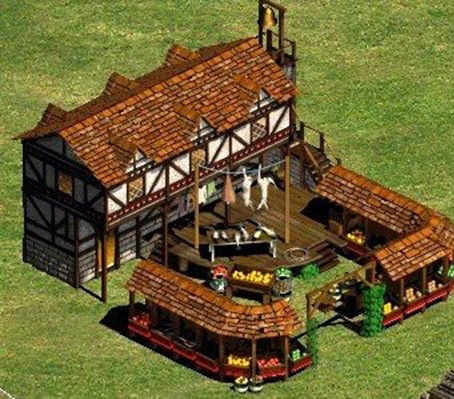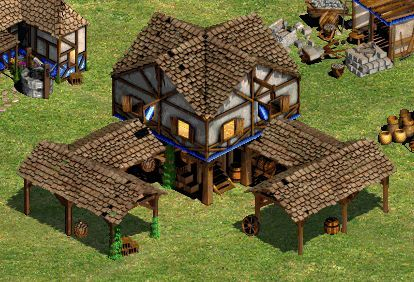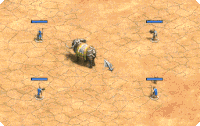Some weeks ago, I downloaded Age of Empires 2 Definitive Edition to re-experience again this outstanding real-time strategy (RTS) game I first played when I was 12 years old, in a demo edition Windows 98 included. But many years have passed since that day, and neither I nor Age of Empires remained the same. So when I began playing this beloved game recently, something felt different, and it had nothing to do with improved graphics or new civilizations. As a localization project manager (LPM) now, I realized that no matter if you are developing your economy during the Feudal Age, recruiting an army from Castles and Stables, or fighting a long post-imperial battle, the game always makes players multitask in a way it resembles the everyday life of LPMs. They need to simultaneously manage economic resources, respond to various alerts or indicators, and lead teams into different battlefronts.
Yet, that’s not all. Age of Empires has more insights to offer into project management. Let’s find out here why playing AoE can be an excellent induction into LPMs’ realness.
LPM 101
But first, a quick note about what localization project managers do on their end. Basically, the main function of LPMs consists of allocating localization projects and considering quality and time expectations from clients. But there is more to that than it may seem in plain sight. On the one hand, LPMs manage budgets and costs, and that makes them interact with sales departments and negotiate with clients about rates and resources. On the other hand, they are proactive team leaders in projects that involve more than one vendor. In addition, and above all, project management depends on developing an analytical approach without which any LPM will fail: understand the scope and the requirements, anticipate risks and potential solutions.
Setting up a Match, Setting up a Project

The thing is that, if you have ever played AoE, you may have faced similar challenges to the above mentioned without being aware of it. First of all, a match will lead to no victory without an economic strategy that supports the army/team you will recruit. How players prioritize the recollection of the four resources (gold, wood, stone, food) determines the kind of army they can assemble. This is why Markets, as the sales department in any translation team, are so important. They help players trade resources to fulfill their needs, just as sales departments help LPMs leverage the economic assets they have at their disposal.
Moreover, I like to think of the start of a match as the moment of analysis that comes before tackling a localization project. First, the LPMs assess the complete situation, just like the Scout Cavalry explores the map. Thanks to this, players know what resources they have, where the challenges lay, and where the enemies have their buildings. This is the kind of information that’s crucial to minimize risks for the rest of the game/project. Once this step is done, players (as LPMs do) will recruit the best team for this specific scouted scenario, and lead them into action.
Allies and Enemies

In most maps, players start with a Town Center and some Villagers. In a way, the same happens in translation projects. There is always a human resources department on our end that is prior to any project and works as the base upon which project management works. LPMs always need that background that was before the project/game starts: a strong operational team, and a nurtured linguists’ database.
The parallels go beyond managing resources and teams. We may also learn from AoE that teams are nothing without a strong technology infrastructure.
Players can recruit a huge army (say, put together the best linguistic team) but they won’t last in battle without researching technologies in the Blacksmith or the University. Likewise, proficient IT departments boost the capabilities of any localization team, and they know how to use IT resources (like CAT Tools or Quality Management software) to take the best advantages from them, in terms of quality and productivity. On another note, this sound from the game —enemy’s Monks converting your units— triggers one of the most upsetting feelings we can experience as LPMs. Nobody wants to see that the best linguist in the team now plays for the rival agency.

This is why, in my opinion, Monks are like Vendor Managers, and they are crucial for the game: always “healing” the relationship with providers by offering training and support, but a dangerous actor when playing for the enemies’ team.
A Shared Motto
Think fast and practically, and act quickly and efficiently. This principle can serve AoE players and LPMs. Maybe we never realized that both were managing resources against time; perhaps we never thought a strategy game could be a kind of work training. So with Age of Empires on one side and LPMs on the other, maybe it’s time to switch sides and see how our skills play out on the opposite field.
